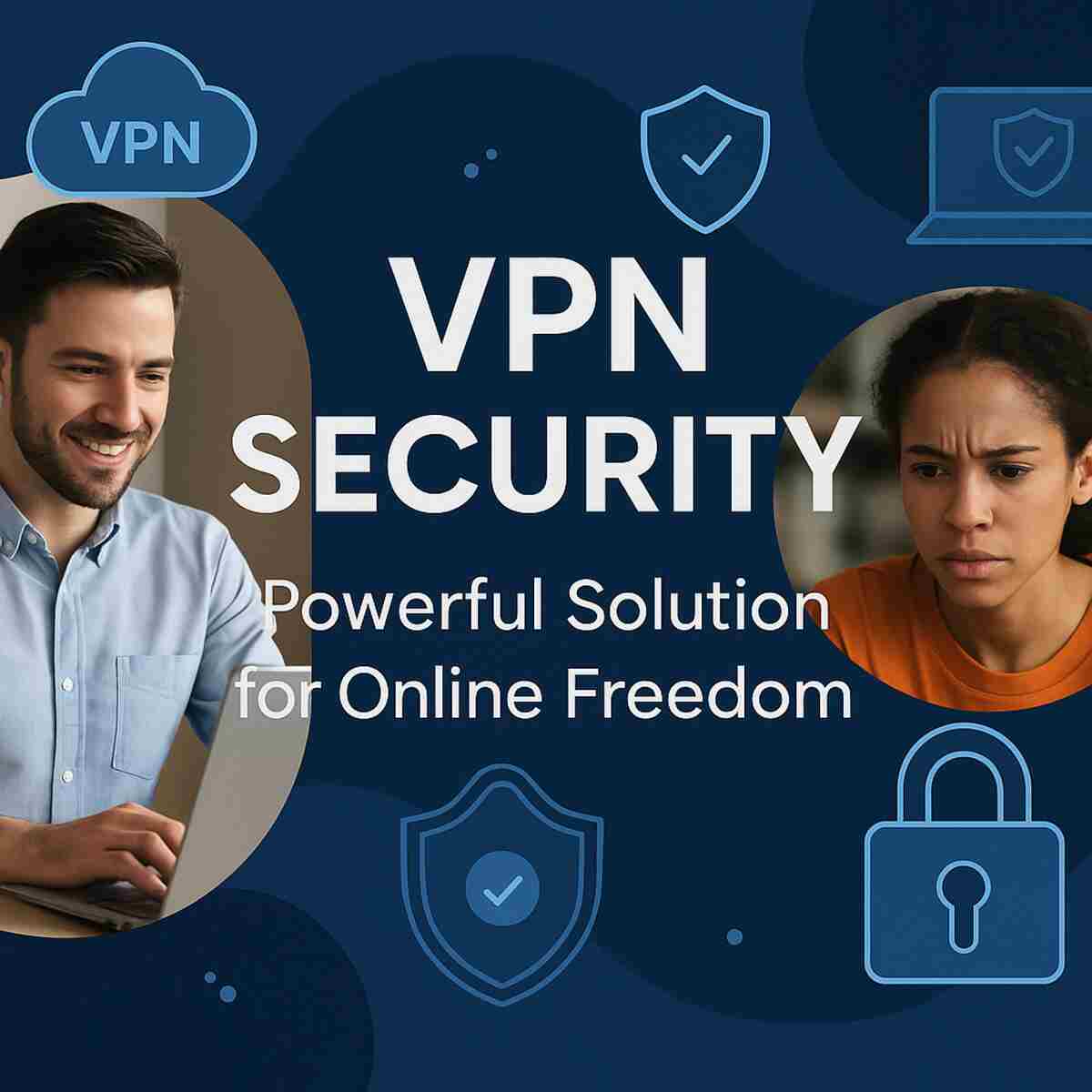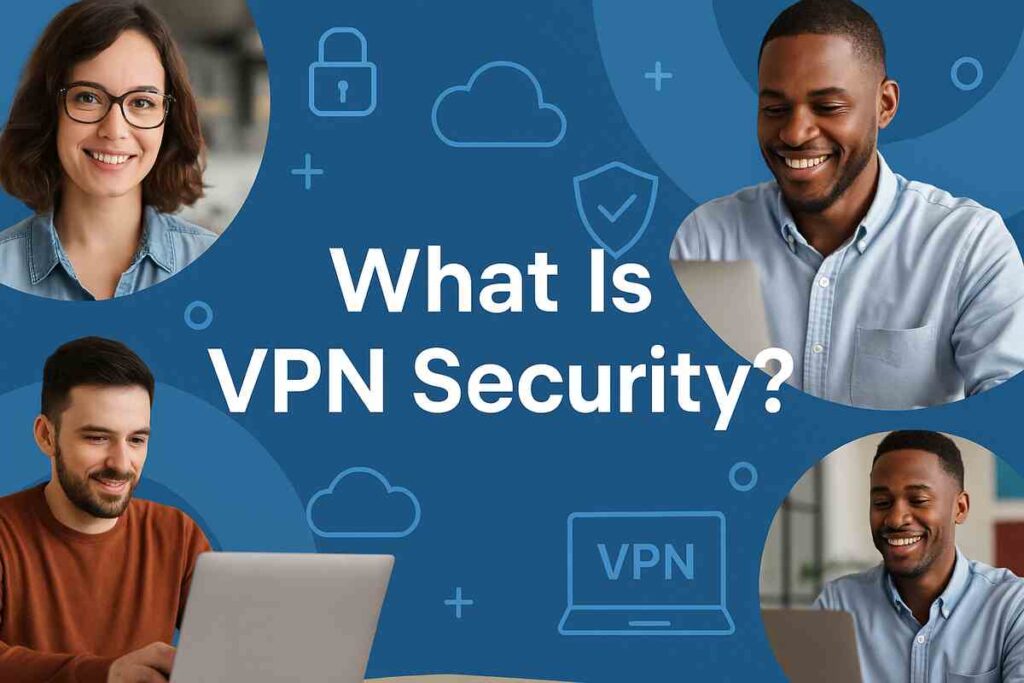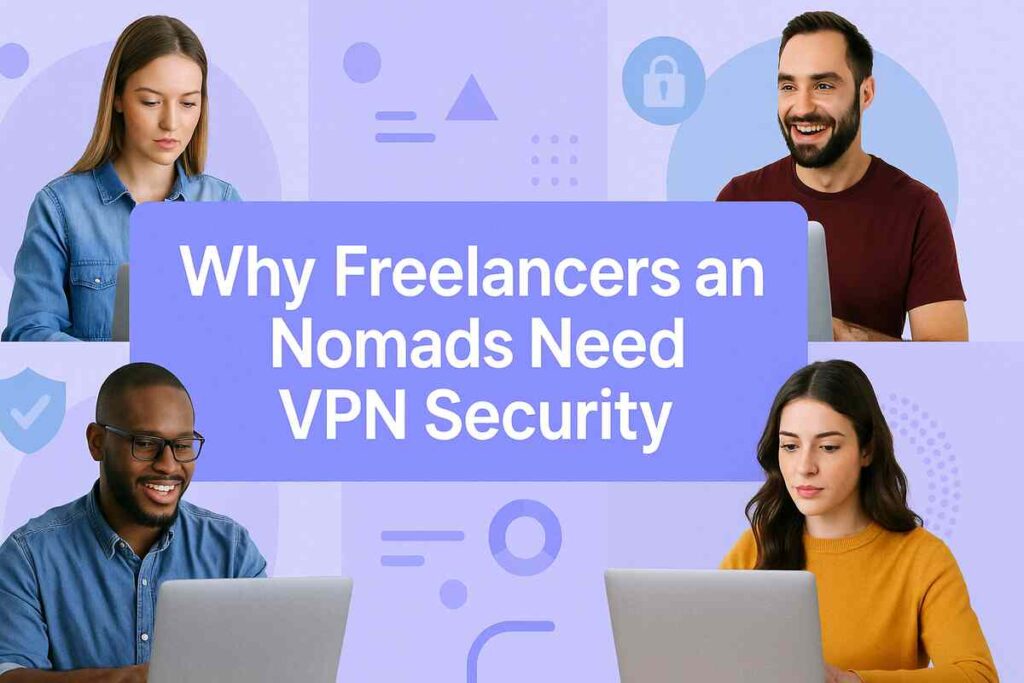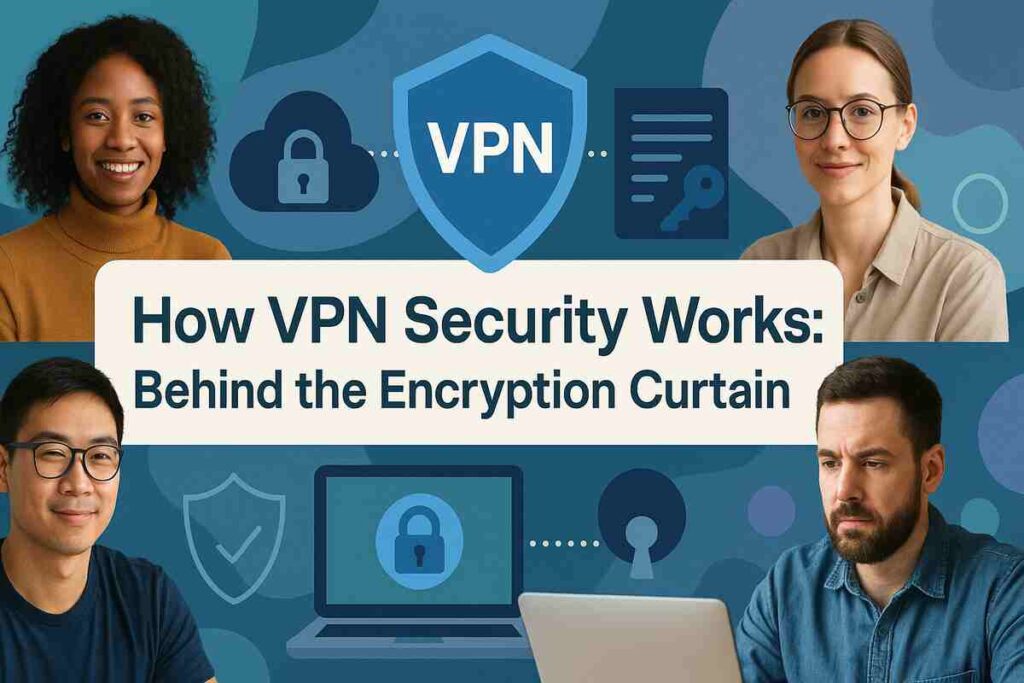Physical Address
304 North Cardinal St.
Dorchester Center, MA 02124
Physical Address
304 North Cardinal St.
Dorchester Center, MA 02124

As remote work takes the world by storm, VPN Security has emerged as a cornerstone of online freedom for freelancers and digital nomads. With constant travel, reliance on public networks, and diverse international clients, location-independent workers face unique cybersecurity threats. VPNs offer a powerful shield, enabling safe, unrestricted access to digital tools and data regardless of geography.
Yet many freelancers still underestimate the power of VPN security—either seeing it as overkill or skipping it due to perceived complexity. In today’s hyperconnected world, that mindset is dangerously outdated. From encrypting traffic to bypassing regional restrictions, VPNs aren’t optional—they’re essential.
This article explores why VPN security is vital, how it empowers the modern freelance lifestyle, and which tools deliver the best balance of performance, privacy, and portability.

A Virtual Private Network (VPN) creates a secure, encrypted tunnel between your device and the internet. This tunnel hides your IP address, encrypts your traffic, and masks your location—shielding your digital activities from prying eyes.
According to a Cybersecurity Ventures report, cybercrime cost the global economy over $6 trillion annually by 2021—and freelancers are not exempt.

Freelancers operate on the edge of corporate infrastructure. Their freedom to work from anywhere comes with a cost—heightened vulnerability.
VPNs solve these problems by enabling consistency, confidentiality, and control over your digital footprint.

When you connect to a VPN, your device communicates with a VPN server, which routes your traffic to the intended destination. The result: your data travels through an encrypted tunnel, protecting it from interception.
Freelancers should prioritize VPNs that use WireGuard or OpenVPN, which strike a balance between speed and security.
A freelance writer in Shanghai uses a VPN to access Google Docs, Gmail, and Trello, which are otherwise blocked by the Great Firewall.
A photographer uploads high-res client files via public Wi-Fi in Lisbon. A VPN encrypts the data in transit, preventing hijack.
A digital designer uses a VPN to access Netflix or Spotify playlists from home country libraries, staying entertained across time zones.
VPNs are more than productivity tools—they protect both work and lifestyle.
| VPN Provider | Why It’s Great |
|---|---|
| Mullvad | No personal info needed, privacy-first approach |
| ProtonVPN | Open-source, free tier available, strong in Europe |
| NordVPN | Thousands of servers, specialty modes like Onion over VPN |
| ExpressVPN | User-friendly, fast servers in 94+ countries |
| Surfshark | Unlimited devices, budget-friendly |
Truth: A slight drop is normal, but high-end VPNs have fast servers and optimization.
Truth: VPNs are about privacy and security—not illegal activity.
Truth: Many free VPNs collect data, inject ads, or lack encryption.
Professional freedom demands professional-grade protection.
Incorporating VPN security into daily practice ensures your workflow remains uninterrupted and uncompromised.
VPNs are a strong first line of defense—but not the only one.
Security is a mindset. VPNs empower you—but vigilance sustains you.
In an age where borders blur and work travels faster than passports, VPN Security stands as a digital passport to online freedom. For freelancers and digital nomads, it’s not just a tool—it’s a necessity.
From protecting sensitive client data and accessing global platforms to reclaiming your right to privacy, a VPN ensures that you—not your ISP, your government, or a cybercriminal—control your online experience.
Embracing VPN security is not about hiding—it’s about owning your digital life.